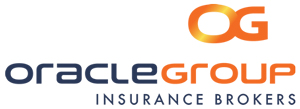The past three years have been a whirlwind for hospitality businesses. While the pandemic seems to be on the wane, your business should still do everything reasonably practicable to reduce the risks of COVID-19’s spread, like keeping up to date on employers’ responsibilities via this Safe Work Australia website.
Other, more inherent risks remain, though. A global report examining risks in the sector found that less than three in 10 businesses surveyed felt the root causes of their risks were somewhat or completely under their control. Yet, just a quarter of business owners had the data or knowledge to tackle their risks.
Whether you own a restaurant, pub, bar, nightclub, café, coffee shop, hotel or resort, four insurance policies help protect your business against the many risks.
Public & products liability insurance
Public & products liability insurance offers your business protection against negligence claims from third parties. That comprises members of the public, patrons, visitors and contractors, etc., to your workplace. It does not include you or your staff.
This policy – also known as combined liability cover – can help with the following:
Legal costs
Expenses incurred giving others first aid
Medical expenses as well as damages
Compensation for customers’ property that your business damages or destroys.
The types of risks that could trigger this cover include:
Slips, trips and falls
Food contamination
Hot spills
Psychological injuries
Injuries or damage to third parties. For example, an airborne sign injuring a passer-by, a customer, or even a pet.
Even if the third party can’t prove your company’s negligence, you’ll still be out of pocket for defending the claim. That’s where public & products liability insurance is needed to protect you and your staff against claims of negligence, even if it’s accidental.
Workers’ compensation insurance
Your business must have workers’ compensation insurance whether your workers are unpaid trainees, apprentices, part-time, or casual or permanent full-timers.
It means financial compensation is available for staff injured at work or who become ill due to their work. That’s whether you, as the employer, were at fault or not. Compensation covers their wages, medical expenses and rehabilitation while they’re not fit for work, according to the Fair Work Ombudsman.
Work health and safety laws differ in each state and territory, so find your relevant authority via this official site.
Business interruption insurance
Unexpected interruptions to your operations can hit your company’s bottom line and threaten your survival. One insurer survey found a quarter of small businesses said they would close if they couldn’t operate for three months.
You can manage this risk with business interruption insurance. Here’s how it can cover you:
Fund your operations if you’re rebuilding and waiting for plans to be drawn, council approval or having trouble securing builders
Your costs to find and fit out new premises and advertise your opening date to customers
For wages of your key staff until you open
When other businesses you rely on, such as suppliers, are disrupted
Limited operations due to the cutting of power or gas supply.
We’re here to help!
There is a wide range of insurance policies available. While they may look similar on the surface, delve into the fine print, and you’ll find quite a few differences. We can familiarise you with options customised for your unique business to support its resilience. Contact us below!

